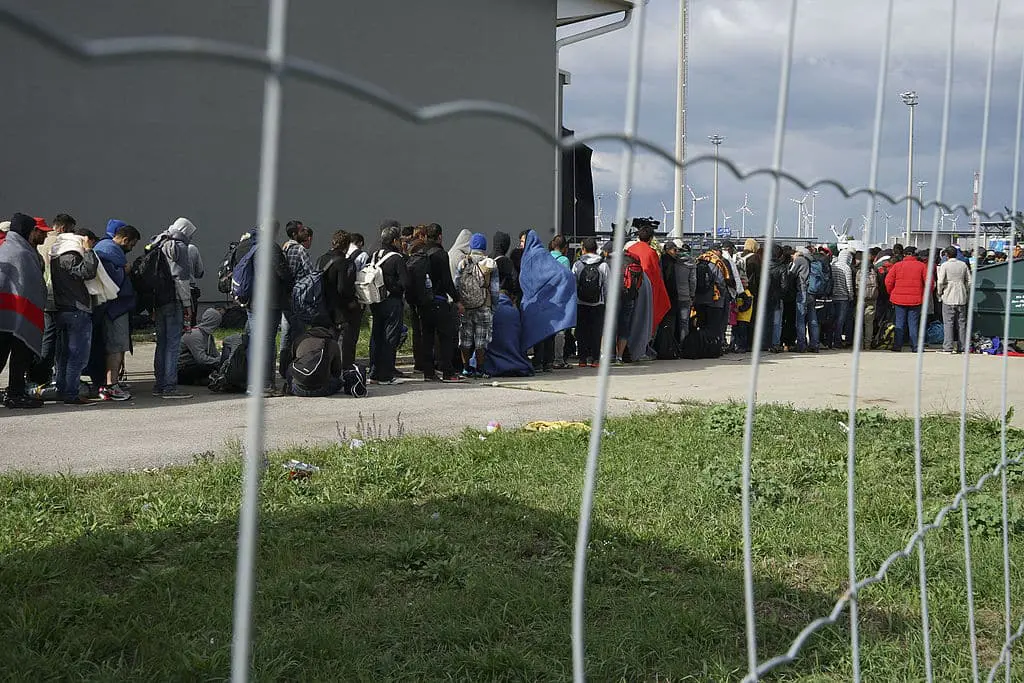A decade after its outbreak, the Europe migrant crisis is still treated as a temporary disease, a vexing ailment that could be cured never to return again. The European governments are persistent in their efforts to curb the influx of migrants and prepare the grounds for the return of those already living in the European Union as refugees. These policies are usually justified by economic considerations, that are increasingly dominating the agenda as Europe anticipates the cold shadow cast by the potential loss of Russian oil and gas in winter due to the Ukrainian crisis.
The people from Syria, Lebanon, Iraq, Libya, Sudan, and Afghanistan – the list goes on – who sought refuge in Europe in the hope of escape from war and poverty in their homeland are now facing an uncertain fate. Their vulnerable position and inability to surmount challenges presented by integration into a new society put the migrants in a vicious circle and fuel xenophobic beliefs.
Perhaps the most controversial policy on the migration issue is adopted by the United Kingdom. When the Syrian crisis unfolded, the government of David Cameron was accused of hypocrisy because in the first five years of the Syrian war it approved entry for only 200 Syrian refugees. The situation changed for the better after the introduction of the so-called “refugee scheme” under which the UK pledged to accept 20.000 Syrians by 2020.
However, soon after the completion of the scheme then Prime Minister Boris Johnson announced the plan to deport Syrians along with migrants from Afghanistan and Somalia to Rwanda in a deal tailored after a similar mechanism developed by Israel. The Rwandan asylum plan caused fear among the refugees and provoked public protests. Although the first flight to the African country scheduled for June 14th was cancelled at a last-minute notice, the UK authorities vowed to pursue the original plan.
Another example of inconsistent migration policy is Denmark’s decision to send Syrians back to Damascus despite Copenhagen’s stance in support of the opposition of the Damascus-based government of Bashar al-Assad. Much like the UK Rwandan initiative, it was not received well. The European Court of Human Rights assumed that such a step would set a dangerous precedent, which would result in Western states throwing out thousands of Syrian refugees.
Even Sweden which has distinguished itself as a most welcoming country with roughly 20% of its population being migrants and refugees has started to roll back on the freedom of entry. The lack of integration of migrants into the Swedish culture and society has caused an uprise in the formation of right-wing groups, resulting in the decision to make the immigration policy stricter. Since 2016 family reunification was made much more difficult and Swedish authorities no longer accept migrants with no valid IDs.
A similar situation is unwrapping in Germany, which over the last decade has received 3,3 million refugees, mostly from the Middle East. The official position of the German government is that hosting migrants is beneficial for Germany because they contribute to population growth and serve as a source of the labour force. In 2022 Berlin even made the process of becoming a resident easier for the immigrants. Why was the bill passed only now despite the need for it to have been present for many years? The obvious conclusion is that Germany hosts around 900,000 Ukrainian refugees and they are not easy to shelter. Some even suspect that to be able to support the Ukrainians Berlin might follow the example of other European countries in getting rid of other, less desirable refugees.
Sources among the Syrians living in Germany claim that various non-governmental organizations are offering Syrian refugees short-term job contracts with a promise to help them get German citizenship upon completion of the contract. The job is described simply as “maintaining security”, a vague definition not dissimilar from those included in the papers signed by Syrians hired by Turkey to fight in Libya and Nagorno-Karabakh. Two people who have seen the contracts confirm that the job indeed entails travelling abroad as a mercenary. The destination, although not specified in the contract, is rumoured to be Ukraine. In at least one case a Syrian was threatened with deportation before being offered to sign a contract as an alternative.
The double standards applied to the refugees from the Middle East are not sufficiently addressed in German public discourse. German politicians either avoid speaking on the issue or tacitly support taking in the Ukrainians who are seen as coming from a closer cultural and religious background.
While German officials stop short of saying Arabs are not welcome, in France such statements are openly made by top-level political figures. Far-right presidential contender Eric Zemmour stated that Ukrainians should be given visas to France as they are “closer to Christian Europeans” on French national TV this March.
“There are people who are like us and people unlike us. Everybody now understands that Arab or Muslim immigrants are too unlike us and that it is harder and harder to integrate them,” he said.







